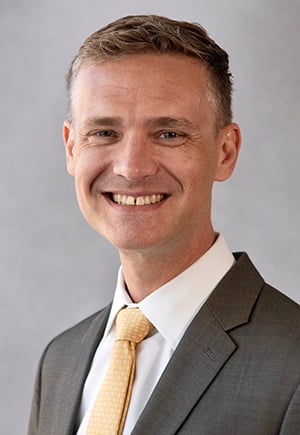EMRA Videos
Webside Manner: Always Wear Pants...and Other Tips for a Successful Telehealth Visit
EMRA is proud to collaborate with the residents and faculty of NewYork-Presbyterian - Cornell/Columbia and the Weill Cornell Medicine Center for Virtual Care to bring you "Webside Manner: Always Wear Pants...And Other Tips for a Successful Telehealth Visit"
Telemedicine Visits: How to Perform Virtual Physical Exams
EMRA is proud to collaborate with the residents and faculty of NewYork-Presbyterian - Cornell/Columbia and the Weill Cornell Medicine Center for Virtual Care to bring you "Telemedicine Visits: How to Perform Virtual Physical Exams"
Effective Consultation in Emergency Medicine
"EMRA, CDEM, and CORD are excited to announce the release of a new educational video entitled "Effective Consultation in Emergency Medicine." This video joins earlier productions on patient presentations and transitions of care to provide learners in emergency medicine with instruction on optimizing different forms of communication that take place in the emergency department. Effective consultation reinforces the importance of structured communication and shares the 5Cs of Consultation as a validated model. Illustrative examples are provided for both medical students and residents. Enjoy the show!"
REFERENCES
Burgener AM. Enhancing Communication to Improve Patient Safety and to Increase Patient Satisfaction. Health Care Manag. 2017;36(3):238-43.
Kessler CS, Tadisina KK, Saks M, Franzen D, Woods R, Banh KV, et al.The 5Cs of Consultation: Training Medical Students to Communicate Effectively in the Emergency Department. J Emerg Med. 2015;49(5):713-21.
Kessler CS, Afshar Y, Sardar G, Yudkowsky R, Ankel F, Schwartz A. A prospective, randomized, controlled study demonstrating a novel, effective model of transfer of care between physicians: the 5 Cs of consultation. Acad Emerg Med. 2012;19(8):968-74.
Patient Presentations in Emergency Medicine
EMRA and CDEM launched "Patient Presentations in Emergency Medicine," a training video for medical students. Demonstrating how to tell a compelling story when presenting a patient's case, this brief video offers hand do's and don'ts on how to communicate efficiently and effectively in the ED. EMRA Education Committee members Michael Yip, MD, of Yale School of Medicine, and Aditi Mitra, MD, of William Beaumont - both of whom appear in the film - said the project grew from a simple discussion about how best to serve students.
Improving transitions of care – also called patient handoffs – is a national patient safety priority as communication failures are a leading cause of medical error. Different models have been developed to promote the accurate transfer of patient care information. In a multi-institutional study, a handoff program using the “I-PASS” mnemonic as a structured-communication tool was found to reduce medical errors and preventable adverse events in the inpatient pediatric setting. This video provides an overview of effective transitions of care within the emergency department and features the I-PASS mnemonic.
REFERENCES
Starmer AJ, Spector ND, Srivastava R, West DC, Rosenbluth G, Allen AD, et al. Changes in medical errors after implementation of a handoff program. N Engl J Med. 2014;371(19):1803-12.
Heilman JA, Flanigan M, Nelson A, Johnson T, Yarris LM. Adapting the I-PASS Handoff Program for Emergency Department Inter-Shift Handoffs. West J Emerg Med. 2016;17(6):756-61.
Cheung DS, Kelly JJ, Beach C, Berkeley RP, Bitterman RA, Broida RI, et al. Improving handoffs in the emergency department. Ann Emerg Med. 2010;55(2):171-80.
Safer Sign Out Protocol. Available at ACEP.
This landmark documentary takes you behind the scenes of emergency medicine to tell the powerful story of the specialty’s maverick founders, whose determination to save lives and improve public health transformed the American medical landscape. This extraordinary film – winner of two prestigious Telly awards – gives you access to these pioneers and the compelling experiences that shaped their resolve and created their livelihoods. The two-disc set includes the 65-minute documentary, plus extended interviews on building the specialty, EMS, pioneering women, global emergency medicine, wartime medicine, and much more.
Related Content



Jan 17, 2024
Optimism vs. Realism — Let’s Call it a Tie
As the voice of emergency medicine physicians-in-training and the future of our specialty, EMRA continues to believe that the future of EM is bright while remaining committed to facing reality and addressing our headwinds. I invite you all to join us in this Stockdale Paradox-esque approach.




